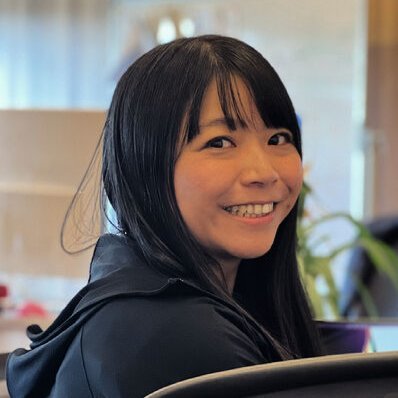For PhD Horizons we’re hearing from Saori Mita, a PhD graduate who transitioned for studying Film Studies to a career in software development. Read on to hear more about this fascinating career transition.
Tell us a little about yourself
My name is Saori and I obtained a PhD in Film Studies with my thesis on the representation of homosexuality in British spy fiction, and then I switched my career toward software development. I currently work as a web developer at VU Amsterdam, one of the leading research universities in the Netherlands, where I’m engaged in programming tasks for research projects in the movement science and psychology field. My job also involves communicating with researchers to understand what they need from the software we build to support their work.
My journey into this role began in 2020, while I was writing my PhD thesis. I heard that the pandemic had a significant impact on university employment, and that made me reconsider my future. Even before COVID, finding a job as a humanities researcher was already highly competitive, so I decided to switch and teach myself how to code. I started with free online resources, including computer science courses offered by universities, and gradually built up my knowledge. Eventually, I completed my self-study journey with a coding bootcamp, which gave me the final push I needed before starting the job hunt.
How do you think your PhD prepared you for this change?
Looking back, one of the most valuable outcomes of my PhD at the University of Edinburgh was confidence, and a real advantage in finding a fulfilling job in Europe. It’s often said that landing a job in Europe can be difficult for those who grew up in Japan, due to cultural and language barriers, especially considering how different Japanese and European languages are linguistically. At first, I wasn’t sure how my job hunt would go, but my anxiety quickly disappeared once I got started. The Dutch job market turned out to be surprisingly welcoming, and some employers told me they picked up my CV specifically because I had a PhD, even though it wasn’t in IT. That recognition really boosted my confidence, and I often reminded myself, “I can do this. I’ve got a PhD from Edinburgh!” I imagine this situation might sound familiar to those who from East Asia, who may worry about their post-PhD prospects in Europe. For me, though, completing my academic journey at Edinburgh opened doors beyond Japan and gave me an empowering experience.
I’ve found that the most transferable skill from my PhD to my current role is problem-solving. That’s really the core of both a PhD and software development: you’re constantly facing new problems and finding ways to solve them. I got used to working independently and searching for solutions amid uncertainty during my PhD, and that mindset has been essential in my job.
I’ve also found being a software developer requires constant learning, which some people find challenging. But for PhDs, who already have a deep passion for learning, this is often a natural fit. In fact, the continuous learning process in the software industry can offer a similar kind of enjoyment to what you experienced during your PhD. It satisfies intellectual curiosity and the drive to acquire new knowledge.
How did you find the transition to this new discipline?
Of course, the transition wasn’t without its challenges. Coming from a humanities background, actually learning to program was a big challenge. I felt I grasped the concepts because reading large volumes of text and understanding complex ideas was part of my daily life as a PhD student. But coding demands technical precision at the smallest level, and that was completely new to me. I had to start from scratch in many ways, especially in terms of hands-on technical skills. Still, it wasn’t impossible to overcome, thanks to the attention to detail and perseverance I developed while working through challenging texts during my humanities PhD.
What advice would you share to anyone considering a move out of academia?
If I could share one piece of advice with current PhD students considering a move outside academia, it would be this: your skills are more transferable than you think. PhD students, no matter their discipline, are people who love thinking deeply and solving problems, and that mindset is highly valuable in the tech world. I’ve found there’s a natural connection between research and software development. In fact, I’ve met quite a few people in the software industry who used to work in academia. So if you’re considering a move outside academia, especially into tech, you’re not alone.
If you’d like to connect with Soari you can find her on LinkedIn.


